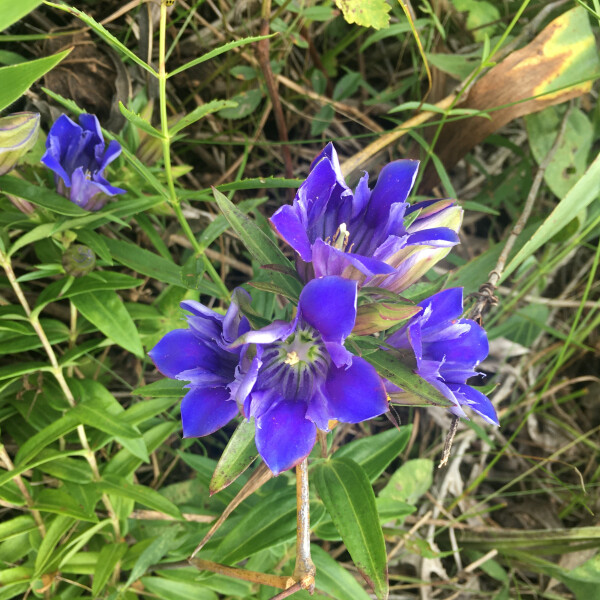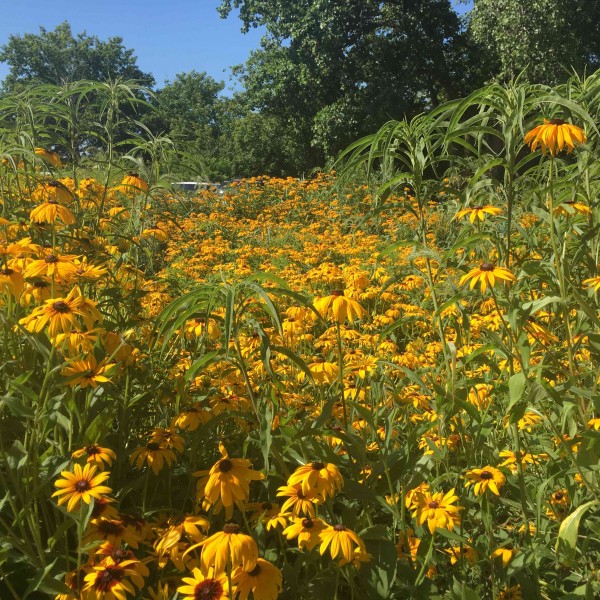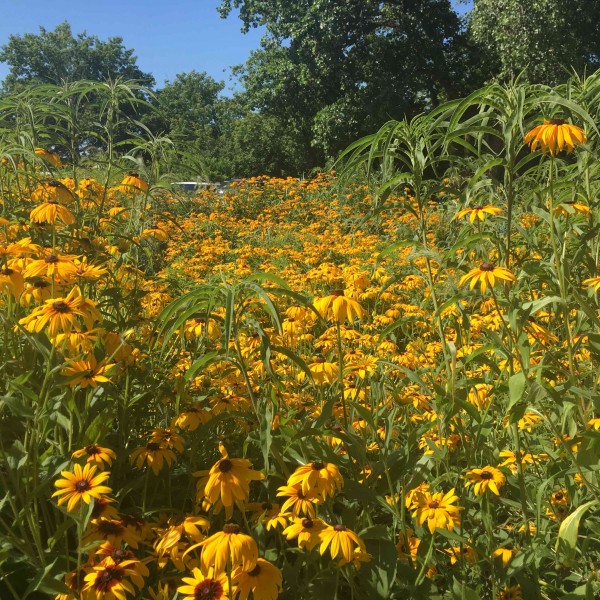
Does AMF colonization of G. puberulenta roots improve its survivorship in a pot environment? 2023
Soils lab and in the field.
Ecology, Soil & Fungal Biology, Fieldwork, Labwork, Natural Areas Management
The prairie plant Gentiana puberulenta (downy gentian) is a desirable plant for prairie restorations that has proven to be difficult to propagate in pot culture. Typically, seeds germinate readily and form a small rosette the first year. However, in the second year, after initial spring growth, seedlings become chlorotic and die. We are manipulating the pot soil medium to discourage seedling failure in their second year. First year plants have been transplanted into a variety of soils where half of the pots were inoculated with soils removed from the base of wild plants in an effort to establish arbuscular mycorrhizal fungi (AMF) root colonization, which may have positive effects on plant survival. The REU student will analyze Gentian roots for AMF colonization and perform a plant leaf nutrient analysis. Root and leaf analyses could also be performed on G. puberulenta plants in the nursery and from source plants from a wild prairie in Iroquois county, IL. Comparisons of resource allocation for plants growing in different soil environments may reveal why G. puberulenta does not survive in a pot environment.
If time permits, results of this experiment could be published in Native Plant Network’s Propagation Protocol Database.

